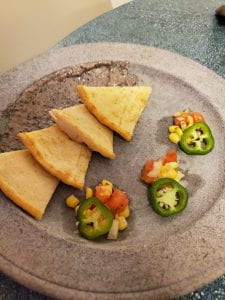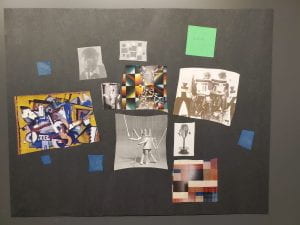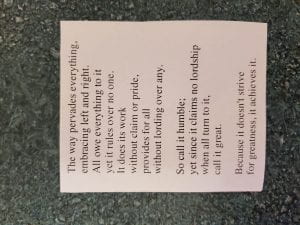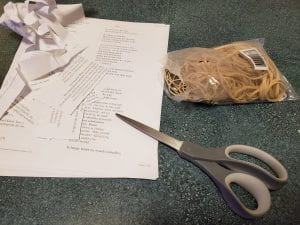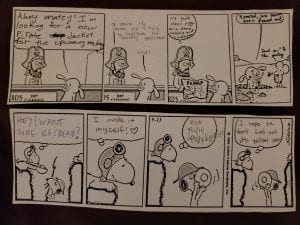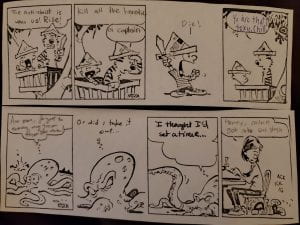Before I came to Northeastern, I worked a couple jobs in the restaurant scene, most recently as a chef at a more upscale seafood place near New Haven CT. preparing fancy food can be a lot of fun (when not under the stress of a hectic dinner service), and my favorite step in selling an order is plating. The customers eat with their eyes–I was told that countless times by all my bosses, and it’s true. People love a nice looking plate of food, even before the first bite critical judgement are made. That being said, I think it can definitely be taken too far. Avant-garde plating the likes of which can be seen on plenty of Food Network shows are sometimes laughably over the top.
That was the inspiration for my game, along with the game art section of “Work of Game”–I had a bit of an idea drought, until it occurred to me that I could re-purpose an existing game/experience to fit my aims. I wanted to provide the fun parts of the experience I had working in an upscale kitchen while satirizing the pretentiousness of extreme fine dining. I thought the best way to accomplish this would be in a “Chopped” style game-art mod/parody; however, in my ‘mod’ of Chopped all of the components of the dish were already cooked and prepared by me. The idea behind this was to place the entire emphasis of the game on the aesthetics and names of the dishes my two contestants came up with–the sole instructions provided to the contestants were to plate the most obnoxiously fancy dish imaginable given the materials provided, and to give said dish a fitting name.
In my first playtest, familiarity with the television genre I was parodying led to some interesting and comedic emergent behavior: the contestants presented their dishes in front of a panel of judges, and really had a blast acting like TV chef personalities, adopting some of the lingo while trying to put on a performance. This was awesome to see because it completely played into my goals for the game–even the judges followed suit when they gave their critiques!
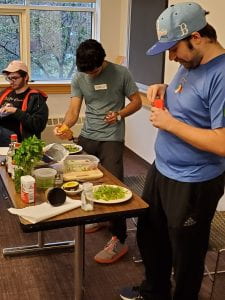
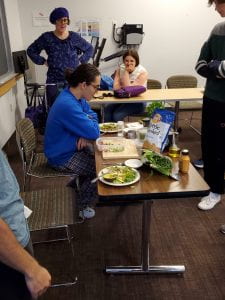
For my final playtest, I tried giving the contestants less time to work with in an attempt to simulate the frantic pace one must keep up with during a busy service. It worked like a charm, creating a fun sort of stress that was even more fun (perhaps somewhat sadistically) for me to watch my friends panic and spill ingredients.
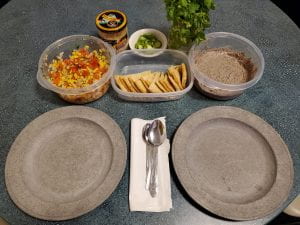
It was during this playtest that my favorite dish of the game was created (see below). It’s hysterically over the top for what it is, and I think the player who created it really hit the nail on the head as far as the goal of the game. In all, I had a great time playing this game with friends and classmates; everyone’s familiarity with shows like “Masterchef” and “Chopped” helped make it a fun parody.
